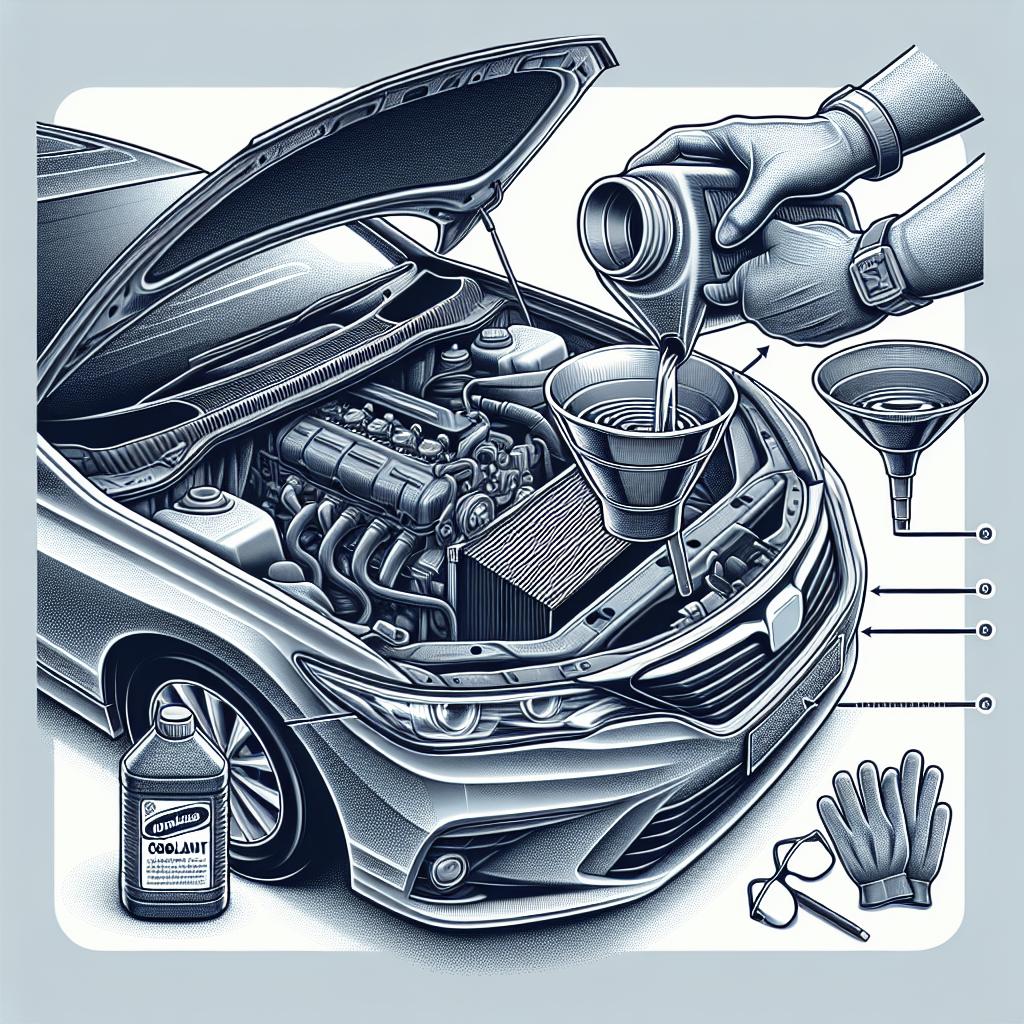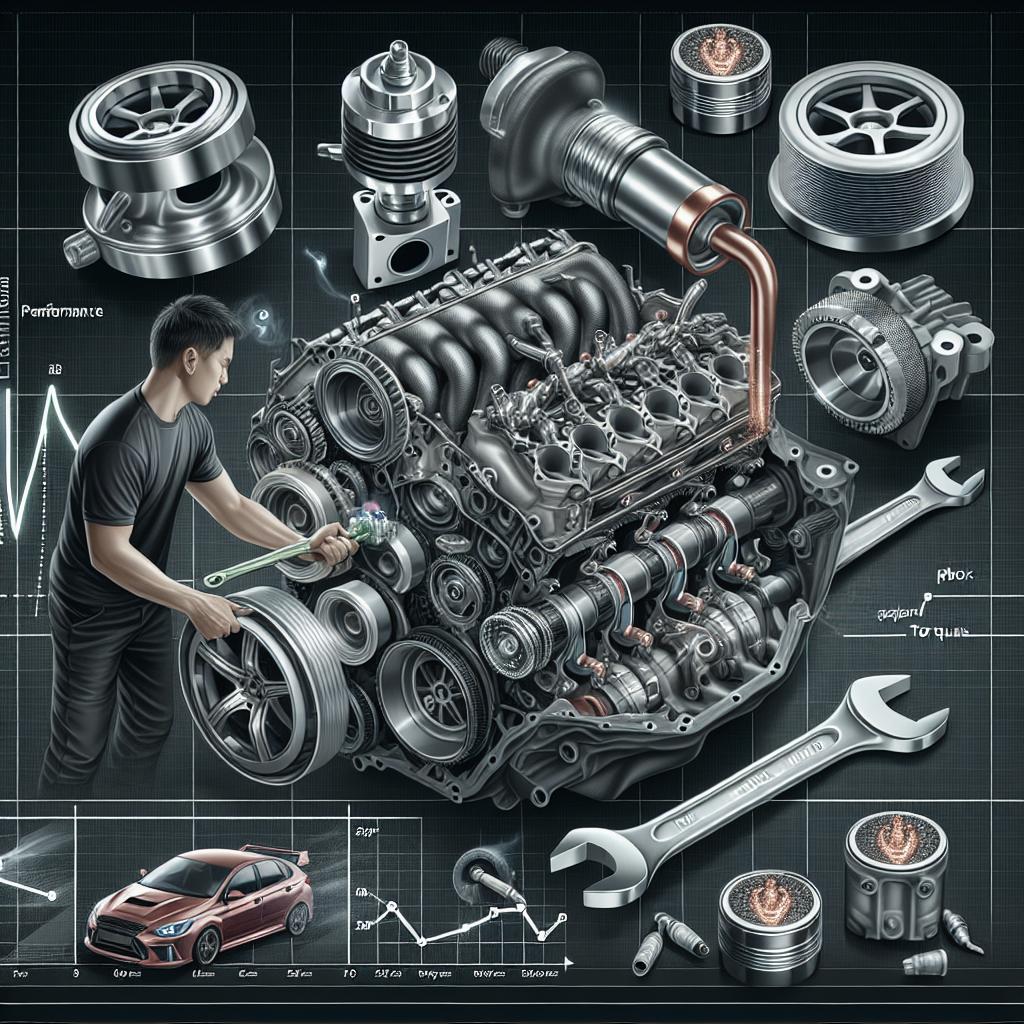“`html
How to Perform a Car Tune-Up
A car tune-up is a crucial part of vehicle maintenance that ensures your car runs efficiently and smoothly. This comprehensive guide will walk you through what a car tune-up is, when to do it, and what it typically includes. Whether you’re a seasoned car owner or a beginner, understanding the importance of each component—like changing spark plugs, filters, and fluids—and the benefits of balancing and rotating tires is key to prolonging your car’s lifespan. You’ll also learn how to recognize the signs that your vehicle requires a tune-up, get insights on the potential costs, and decide whether a tune-up is the best option for your vehicle. Dive into this guide to keep your car performing optimally and to save on costly repairs in the long run.
Quick Facts About a Car Tune-Up
A car tune-up is a service that adjusts the engine and checks the vital components for efficiency. It generally focuses on preventative maintenance, which means doing it regularly can prevent more serious issues down the line.
Traditionally, a tune-up involved changing a set of points and a distributor cap, but nowadays, it’s more about ensuring that modern vehicle systems are functioning properly. As vehicles have evolved, the components included in a tune-up may also have shifted slightly, but the purpose remains the same.
How to Know Your Car Needs a Tune-Up
There are several signs your car might need a tune-up, such as a decrease in fuel efficiency, difficulty starting, unusual noises or vibrations, and irregular idling. If you notice your car is not performing as it used to, it might be time for a professional inspection.
Additionally, dashboard warning lights can be another indicator. If they flicker or stay on, it could imply a variety of issues that a tune-up might address. Stay alert to these signals to avoid bigger mechanical problems.
Check Your Interval
The frequency of tune-ups depends on your car’s make, model, and age. Generally, it’s recommended to check the vehicle’s manual for specific intervals. Newer cars may require less frequent tune-ups compared to older models.
Typically, vehicles benefit from a tune-up every 30,000 miles or as recommended by the manufacturer. However, driving conditions and habits can influence this schedule, so regular checks are advisable.
What a Typical Car Tune-Up Service Includes
1. Spark Plugs
Spark plugs are small, but they play a crucial role in starting your engine. Over time, they wear out and can cause misfires or rough idling. Replacing spark plugs is a key part of a tune-up.
Checking the condition of spark plugs allows you to catch potential issues early, before they escalate into more significant engine troubles.
2. Oil Change
Regular oil changes are vital for the longevity of your engine. Fresh oil lubricates engine parts, reducing friction and preventing wear. This essential step should not be skipped during a tune-up.
As part of a tune-up, oil filters should also be replaced to ensure they effectively remove contaminants and impurities from the engine oil.
3. Filter Replacements
Air and fuel filters can get clogged over time, reducing engine performance and efficiency. Replacing these filters during a tune-up is crucial to maintaining the health of your car.
Neglecting filter replacements can lead to problems like poor acceleration and reduced fuel economy. Make filter checking a regular habit.
4. Belts and Hoses
Belts and hoses connect different parts of the engine and keep them functioning smoothly. Any cracks, leaks, or wear can affect your vehicle’s performance and should be addressed during a tune-up.
Examining belts and hoses ensures they’re not on the brink of failure, which could otherwise lead to breakdowns or more expensive repairs.
5. Windshield Wiper Replacement
Windshield wipers are crucial for visibility during adverse weather. If they are streaking, squeaking, or not cleaning the windshield properly, it’s time for a replacement.
This simple maintenance task can often be overlooked but is necessary for safe driving conditions.
6. Fluids
A tune-up should include checking and replacing essential fluids like brake, transmission, and coolant fluids. Each fluid has a critical role and should be at optimal levels for best performance.
Fluid leaks or low levels can lead to decreased performance or even damage to the vehicle, making fluid checks essential.
7. Checks and Balances
During a tune-up, overall checks are done to diagnose other potential issues. This involves checking the car’s diagnostics system and ensuring all systems are running optimally.
Technicians may use diagnostic tools to uncover issues that are not easily visible, helping to catch potential problems early.
8. Tires Check
Tires are a critical component of vehicle safety and efficiency. During a tune-up, technicians will check the tires for proper tread wear and pressure.
Maintaining proper tire health is crucial for safety and fuel efficiency, and can prevent costly repairs down the line.
9. Tire Balancing and Rotation
Tire balancing ensures the weight distribution across the tires is even, which reduces vibrations and extends tire life. Rotation helps in even wear over time.
Regular balancing and rotation maximizes the lifespan and efficiency of your tires, improving overall vehicle performance.
10. Wheel Alignment
Wheel alignment ensures your car drives straight and avoids uneven tire wear. It’s crucial for safety and steering precision.
An alignment correction is essential if you notice unusual tire wear or your car pulls to one side while driving.
What Is the Cost of a Tune-Up?
The cost of a tune-up can vary widely depending on your vehicle’s make, model, and the services required. On average, a basic tune-up may range from $50 to $200, while more comprehensive services could go up to $800 or more.
Remember that the expenses associated with regular tune-ups are investments in avoiding more costly repairs in the future, as they keep your car running efficiently.
Should I Get a Tune-Up?
Deciding whether to get a tune-up depends on your vehicle’s performance, age, and mileage. If you notice the signs mentioned earlier, it’s likely time for a tune-up.
Regular tune-ups are a proactive approach to car maintenance that can extend the lifespan of your vehicle and improve its performance. Always consult with your mechanic and your car’s manual to determine the best schedule for your vehicle.
Next Steps
| Components | Description |
|---|---|
| Spark Plugs | Essential for starting the engine; replace to avoid misfires and rough idling. |
| Oil Change | Necessary for engine lubrication and to prevent wear. |
| Filter Replacements | Involves replacing air and fuel filters to maintain performance and efficiency. |
| Belts and Hoses | Checked for wear and tear to avoid breakdowns. |
| Windshield Wiper Replacement | Ensures visibility and safety under all weather conditions. |
| Fluids | Essential fluids are checked and refilled as needed. |
| Checks and Balances | Use of diagnostics to ensure all systems function properly. |
| Tires Check | Inspection for tread wear and pressure. |
| Tire Balancing and Rotation | Ensures even weight distribution and wear. |
| Wheel Alignment | Corrects car pulling and fixes uneven tire wear. |
“`


